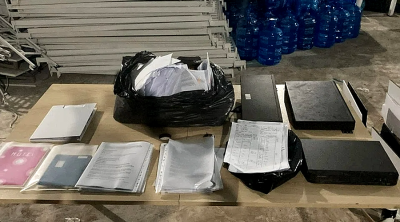Sin Chew Daily
On October 7, the government declared that conditional CMCO would be enforced in three areas in Sabah, namely Sandakan, Papar and Tuaran, and Klang in Selangor for 14 days with effect from today.
Prior to this, Kota Kinabalu, Penampang and Putatan had also implemented CMCO from October 7 because of the need to curtail the spread of the coronavirus in view of the deteriorating situation in these areas.
Nevertheless, defense ministry senor minister Datuk Seri Ismail Sabri Yaakob, who is responsible for the battle against the virus, failed to provide clearer details when making the announcements. As a result, many local residents felt confused, especially those living in Klang.
Due to increasing numbers of new infections and clusters in several states in the country, there is a strong possibility that CMCO will be enforced in more places in near future.
At the same time, on the national level, the RMCO is still in force, and local businesses as well as members of the public are beginning to restore their day-to-day living.
While implementing CMCO in several more seriously affected areas, it is utterly necessary for the government to take into consideration the impact of CMCO and the implications it may have on the affected residents.
Take Klang in Selangor for instance, the number of cumulative infections in the Jalan Meru cluster in Klang has reached a critical stage at this moment, and it is therefore understandable that the government has announced the implementation of CMCO there in a bid to break the infection chain. However, when the CMCO was initially announced, it encompassed the entire Klang district, and many local residents were caught off guard.
Klang district is very large, covering two mukims, two local governments (Klang municipal council and Shah Alam city council), and 11 state assembly seats, four of which straddling both Klang and Petaling districts.
What the government failed to clarify was whether CMCO would involve only local government or district divisions. As a result, almost a million people were confused whether the CMCO would also apply to their areas.
The government later announced that the CMCO would only be implemented in Mukim Klang, not including Kapar. Nonetheless, confusion had already been caused and the authorities should draw a valuable lesson from this incident.
Due to the rushy announcement and lack of explicit information, rumors went wild in the social media, causing widespread panic among the people. Many were seen rushing to supermarkets to grab up daily necessities and this phenomenon will not help contain the virus outbreak as the SOPs will be breached where large crowds of people throng to the same place for panic shopping.
Indeed CMCO must be enforced with urgency in badly affected red zones, but there should also be adequate communication and consultation between the federal and state governments so that confusion could be minimized.
This time, the PN federal government has failed to communicate with the Selangor PH state government resulting in lack of more precise details several hours before the CMCO is supposed to come into force. This should have been avoided in the first place.
It has been more than half a year since the MCO was first implemented in the country in March. The federal and state level national security councils and various levels of government departments should have amassed some experiences in dealing with the crisis in order to handle any changes to the current situation in a more professional manner.
What happened to Klang should serve as an important lesson lest any new measures introduced by the government will adversely affect the people's day-to-day living and jeopardize the national economy.
Of course, CMCO should be avoided wherever possible. Let's hope that we will be able to flatten the curve very soon and the nation can be spared from the scourge of the virus.
ADVERTISEMENT
ADVERTISEMENT


































